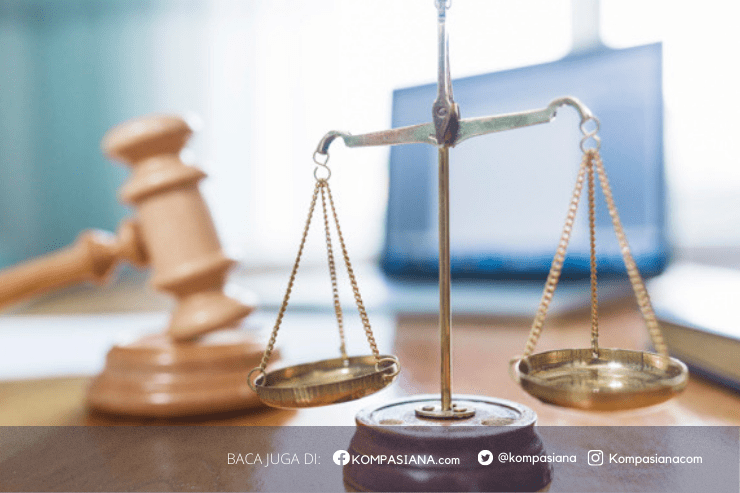Indonesia faces a critical cybersecurity crisis, with an alarming number of cyberattacks targeting the country each year. In 2023 alone, Indonesia recorded 361 million cyberattacks, resulting in financial losses of Rp14.5 trillion ($906 million). Despite having over 220 million internet users as of 2024, one of the largest digital populations in the world, the country remains unprepared for the increasing threat of cybercrime. Rapid digitalization has outpaced the development of security infrastructure and digital literacy, leading to a surge in hacking, identity theft, financial fraud, phishing, and online scams. Many businesses and government institutions still rely on outdated security systems, while enforcement of cybersecurity policies remains weak. Although Indonesia enacted its first Personal Data Protection Law (UU PDP) in 2022, its early-stage enforcement has left significant gaps in data security. Additionally, Indonesia ranked second in Southeast Asia for ransomware attacks, highlighting the severe impact of cyber threats on individuals, businesses, and government institutions. The rise in cybercrime suggests that despite its vast digital population, Indonesia lacks the important legal, technological, and educational safeguards to prevent these threats effectively. Addressing these challenges requires a stronger cybersecurity system, stricter enforcement of cyber laws, improved digital literacy, and greater investment in security solutions. Without immediate and comprehensive action, cybercrime will continue to undermine Indonesia's digital economy, erode consumer trust, and threaten national security.
Indonesia faces significant challenges in combating cybercrime, particularly in data security and digital transactions. A major issue is the prevalence of data breaches, which frequently expose private user information. Despite this, Indonesia only enacted its first Personal Data Protection Law (UU PDP) in 2022, and its enforcement remains in the early stages. As a result, legal frameworks are still developing, leaving gaps in cybersecurity governance. Adding to the problem, many companies fail to implement security measures, leading to frequent data leaks. Weak cybersecurity systems and poor data management practices further exacerbate these risks. This indicates that both legal mechanisms and technological safeguards are still insufficient to effectively prevent cybercrime and protect user privacy. Beyond data protection concerns, Indonesia also struggles with securing digital transactions, particularly in e-commerce. Fraudulent activities such as e-commerce scams, fake investment schemes, and illegal online lending (pinjol) are widespread. These cyber-enabled financial crimes exploit regulatory loopholes and the lack of consumer awareness, resulting in substantial financial losses for individuals and businesses. To address these challenges, Indonesia must strengthen its legal enforcement, improve cybersecurity measures among businesses, and promote digital literacy to help users identify and avoid cyber threats. Without a comprehensive approach, cybercrime will continue to pose a serious threat to Indonesia's digital economy and consumer trust. Indonesia has established a legal framework to regulate digital activities, protect personal data, and strengthen cybersecurity. The Electronic Information and Transactions Law (UU ITE), first enacted in 2008 and amended in 2016 and 2024, governs online transactions, digital content, and cyber-related crimes. To safeguard personal information, the Personal Data Protection Law (UU PDP), Law No. 27/2022 ensures responsible data handling by individuals and organizations. Additionally, the proposed Cybersecurity and Resilience Bill (RUU KKS) aims to enhance national cybersecurity against digital threats. For electronic systems, Government Regulation No. 71/2019 (PP 71/2019) sets rules on data management, storage, and security, while in the financial sector, OJK Regulation No. 11/POJK.3/2022 (POJK 3/2022) mandates stronger cybersecurity measures for banks and financial institutions. Together, these laws help secure Indonesia's digital space and protect its citizens from cyber risks.
Indonesia's fight against cybercrime is hindered by weak enforcement of cybersecurity laws, outdated security infrastructure, and a lack of digital awareness among businesses and consumers. While legal frameworks such as UU PDP and UU ITE exist, their implementation has not kept pace with the rapidly evolving cyber threat landscape. Many organizations, including financial institutions and e-commerce platforms, continue to suffer from data breaches due to inadequate security practices, putting millions of users at risk. Additionally, regulatory oversight remains inconsistent, allowing cybercriminals to exploit legal loopholes and operate with minimal consequences. The rise in digital transactions has also led to an increase in online fraud, such as e-commerce scams, fake investment schemes, and pinjol platforms. These threats not only result in financial losses but also erode consumer confidence in Indonesia's digital economy. The lack of strong authentication systems, data encryption, and fraud detection mechanisms makes it easier for cybercriminals to manipulate digital platforms. Furthermore, jurisdictional challenges make it difficult for authorities to track and prosecute offenders, especially those operating across borders. To address these issues, Indonesia must prioritize cybersecurity as a critical aspect of its digital transformation. Strengthening enforcement mechanisms, enhancing collaboration between government agencies and private sector stakeholders, and integrating advanced technologies like AI-driven threat detection can significantly improve cyber resilience. Additionally, fostering a culture of cybersecurity awareness through education and training will empower individuals and businesses to take proactive measures in protecting their digital assets. Without a holistic and proactive approach, cybercrime will continue to pose a significant threat to Indonesia's economic growth and national security.
Indonesia's rapid digitalization has brought both opportunities and challenges, with cybercrime emerging as a major threat to individuals, businesses, and national security. Despite the existence of key regulations such as UU ITE and UU PDP, weak enforcement, outdated security infrastructure, and low digital literacy continue to leave the country vulnerable to cyber threats. The rise in data breaches, online fraud, and financial cybercrimes underscores the urgent need for a more comprehensive and proactive cybersecurity strategy. Strengthening regulatory enforcement, improving technological safeguards, fostering public-private partnerships, and increasing digital awareness are crucial steps toward building a more secure digital ecosystem. Without decisive action, cybercrime will continue to undermine Indonesia's digital economy, erode consumer trust, and hinder the nation's technological progress. To keep pace with the evolving cyber threat landscape, Indonesia must prioritize cybersecurity as a national concern and invest in long-term solutions to safeguard its digital future.
Follow Instagram @kompasianacom juga Tiktok @kompasiana biar nggak ketinggalan event seru komunitas dan tips dapat cuan dari Kompasiana. Baca juga cerita inspiratif langsung dari smartphone kamu dengan bergabung di WhatsApp Channel Kompasiana di SINI







